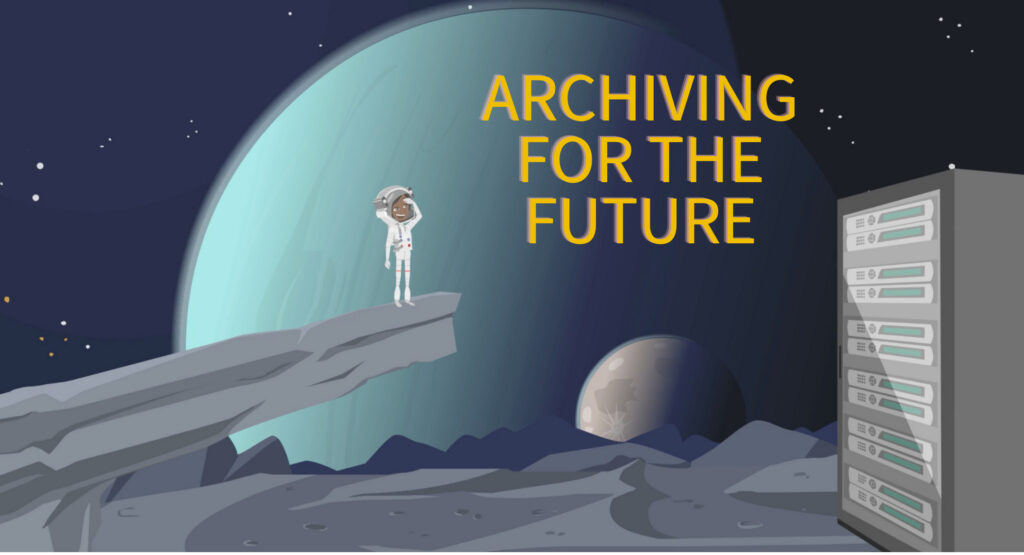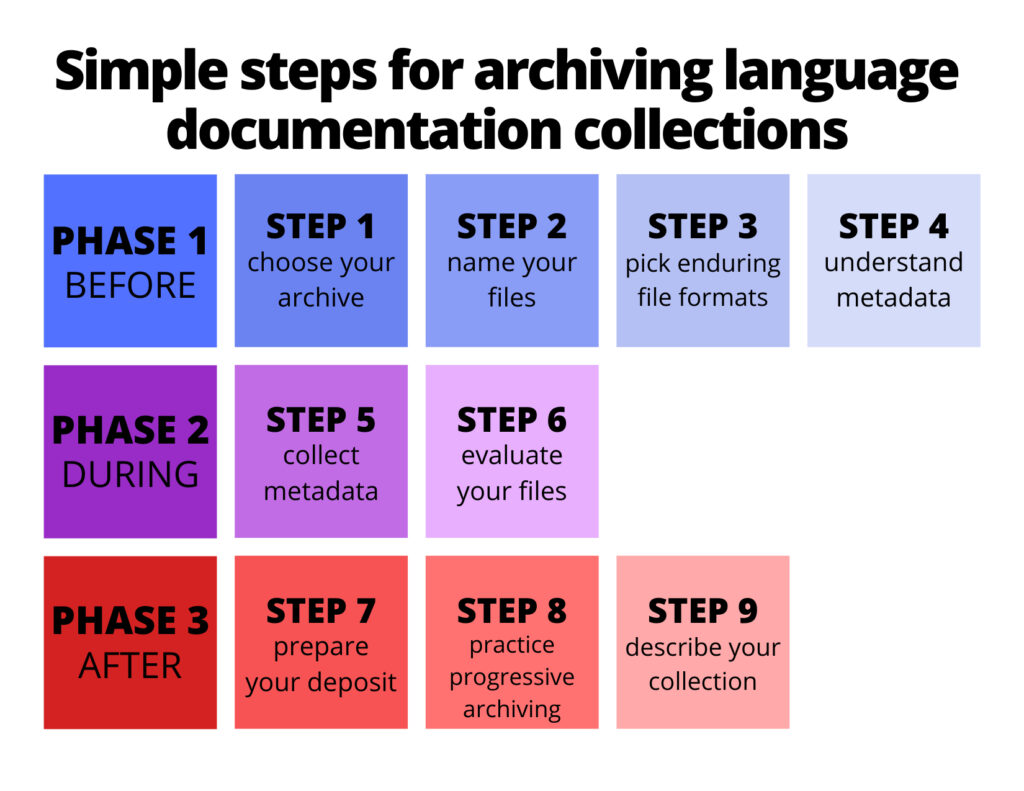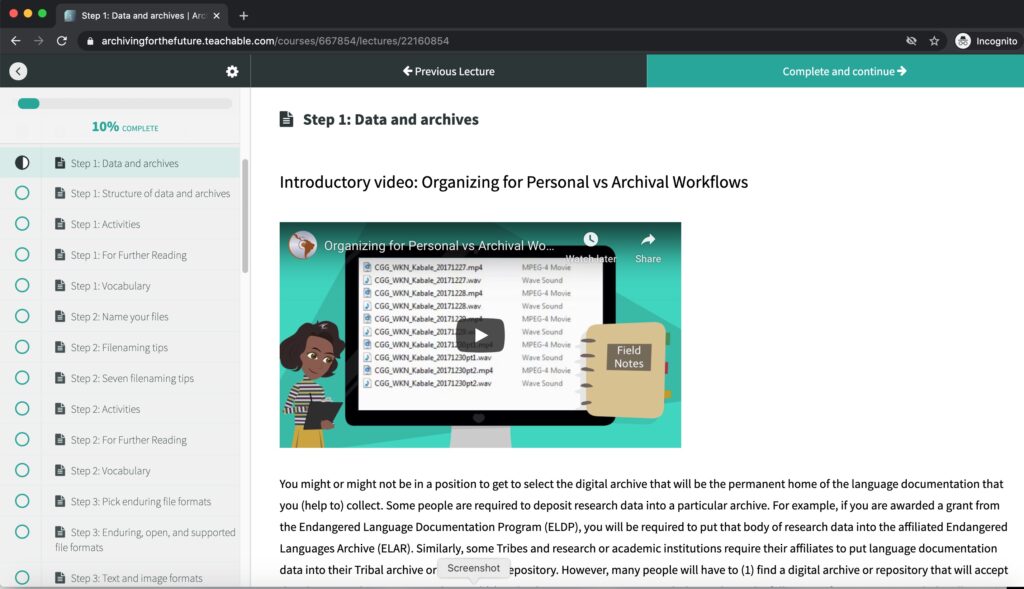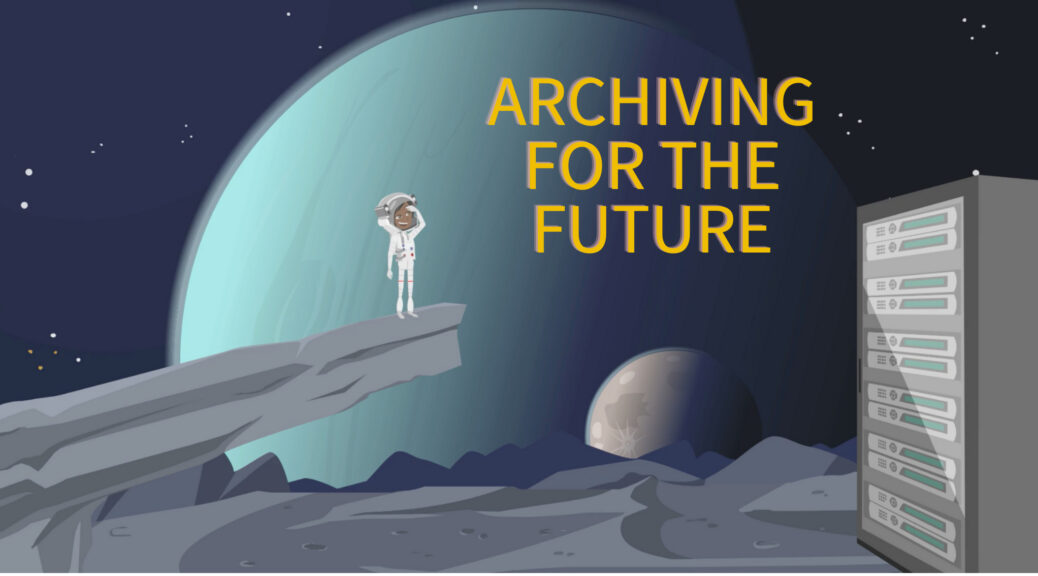BY SUSAN S. KUNG, AILLA MANAGER
The Archive of the Indigenous Languages of Latin America (AILLA) is delighted to announce the launch of a free online course called Archiving for the Future: Simple Steps for Archiving Language Documentation Collections, available at https://archivingforthefuture.teachable.com/. The course material is based upon work supported by the National Science Foundation under Grant No. BCS-1653380 (Susan S. Kung and Anthony C. Woodbury, PIs; September 1, 2016, to August 31, 2020). The course is licensed under a Creative Commons Attribution-ShareAlike 4.0 International license.

The course is a resource to aid people of all backgrounds in organizing born-digital and digitized language materials and data for deposit into any digital repository (not just AILLA) for long-term preservation and accessibility. The target audience for this course is anyone who is engaged in creating materials in or about Indigenous, endangered, under-documented, or minority languages as part of language documentation efforts, including language rights, maintenance, and revitalization. It was designed particularly for individuals or groups made up of academic researchers and/or Indigenous or endangered language speakers and community members, though anyone may benefit from it.
The curriculum follows simple steps to guide participants through three phases of work to organize language documentation materials for archiving, and it explains in detail what to do before, during, and after data collection to facilitate the long-term preservation of the data. The course is designed to be informative, engaging, and accessible to anyone, especially to those with no previous experience archiving collections of language materials.

This course was developed by four members of the AILLA staff: Susan Kung, AILLA Manager and grant co-PI; Ryan Sullivant, AILLA Language Data Curator; Alicia Niwabaga, Graduate Research Assistant 2017–2018; and Elena Pojman, Undergraduate Research Assistant 2019–2020. Sullivant and Kung interviewed representatives of various DELAMAN (delaman.org) archives and other digital data repositories in the United States, the United Kingdom, the European Union, Australia, and Cameroon. Niwagaba collaborated with Kung and Sullivant to develop an early version of the course that the AILLA team taught live at the Institute on Collaborative Language Research (CoLang 2018) at the University of Florida in Gainesville during June 18–22, 2018. Niwagaba created the educational animated videos that are embedded in the course to illustrate key aspects of the curriculum. Pojman researched curriculum platforms in which to build the online course. Teachable was selected for a variety of reasons, including its simple yet attractive aesthetic that displays all course modules in the left side bar (see illustration below); its ease of use and progress tracking for enrolled students; its responsiveness to different technology; and the built-in ability to quickly and easily set up the same course in multiple languages. This last feature is especially important since AILLA staff plan to translate the curriculum into Spanish and Portuguese to make it more accessible to AILLA’s Latin American audience. Once the curriculum software was selected, Kung and Sullivant expanded the original 2018 workshop curriculum and wrote the additional content. Pojman wrote the objectives and activities for each step, built the English course in Teachable, and created all of the graphics that are used in the curriculum.

In funding and academic environments where it is becoming increasingly common for researchers to be responsible for archiving their own research data, the AILLA staff saw a need to train language researchers to do this work so that the resulting language collections would be well organized, well described, easy to navigate, and available to reuse for further research and education. While there are some language documentation programs in North America, Europe, Australia, and New Zealand that train language documenters to do these tasks, most do not, and almost no training on how to archive language documentation is available in Latin America. The AILLA team created this course to fill these gaps.

